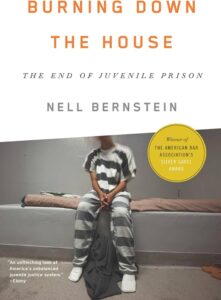by Sheen Saleem Brennan (High School West)
On a brisk Sunday morning at The Lake House in Bayshore, the Social Justice Book Club of the Half Hollow Hills Teachers' Association gathered for a heart-wrenching discussion of Burning Down the House: The End of Juvenile Prison by Nell Bernstein. While the meal was delicious, the conversation about the juvenile justice system left a bad taste in every attendee’s mouth. Bernstein inspired the teachers to seek a better way of reaching our most vulnerable students.
Throughout the discussion, teachers were troubled by how the juvenile detention of children seemed to mimic some of the punishments that students face in schools. Sometimes children receive detention for small infractions that could be better addressed with a conversation than punishment.
Teachers were generally and genuinely concerned that we may be setting students up for failure by relying too heavily on punishment. Some teachers wondered if we are addressing the issues that motivate the problems students create, or if we are perpetuating the problem by applying a disciplinary action instead of a compassionate one.
Some say school is a microcosm of society; if that is so, then the teachers at the brunch really want to solve the problem of why some students keep getting detention by seeking new ways of addressing the problem.
Nell Bernstein suggests that often children get caught up in the system because they don't have advocates. The HHHTA SJBC grappled with ways that we could create a system of advocacy or peer mentorship for troubled students who are "repeat offenders" or who lack support. We need to engage with them emotionally and show them that we care—not just as students, but as people. The system might be broken, but we have the power to fix the way we interact with our kids.
As always, the book club was well-moderated by Debra Rothar and inspiring for all the teachers.


